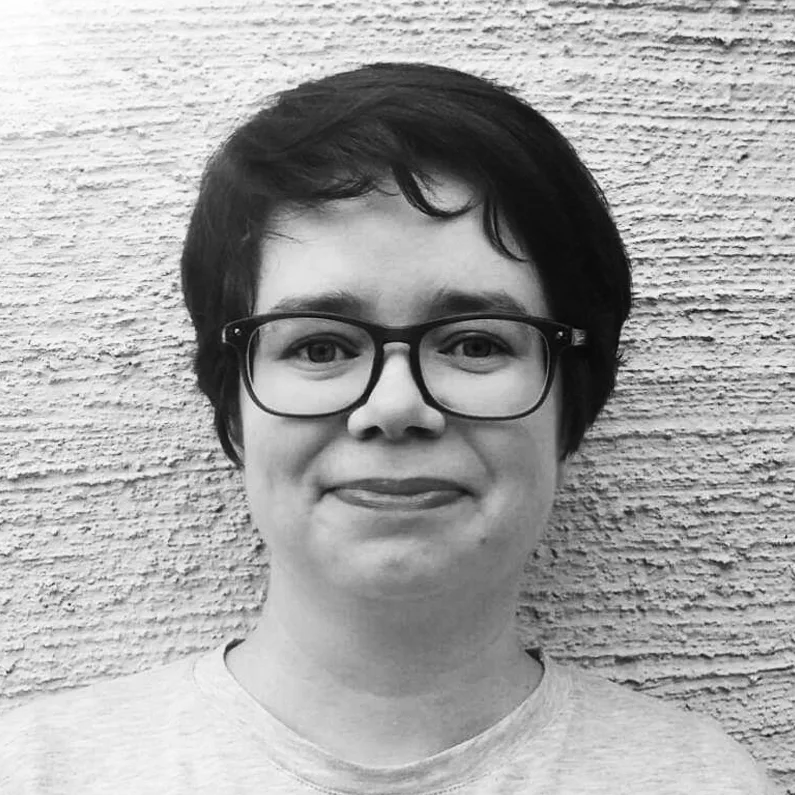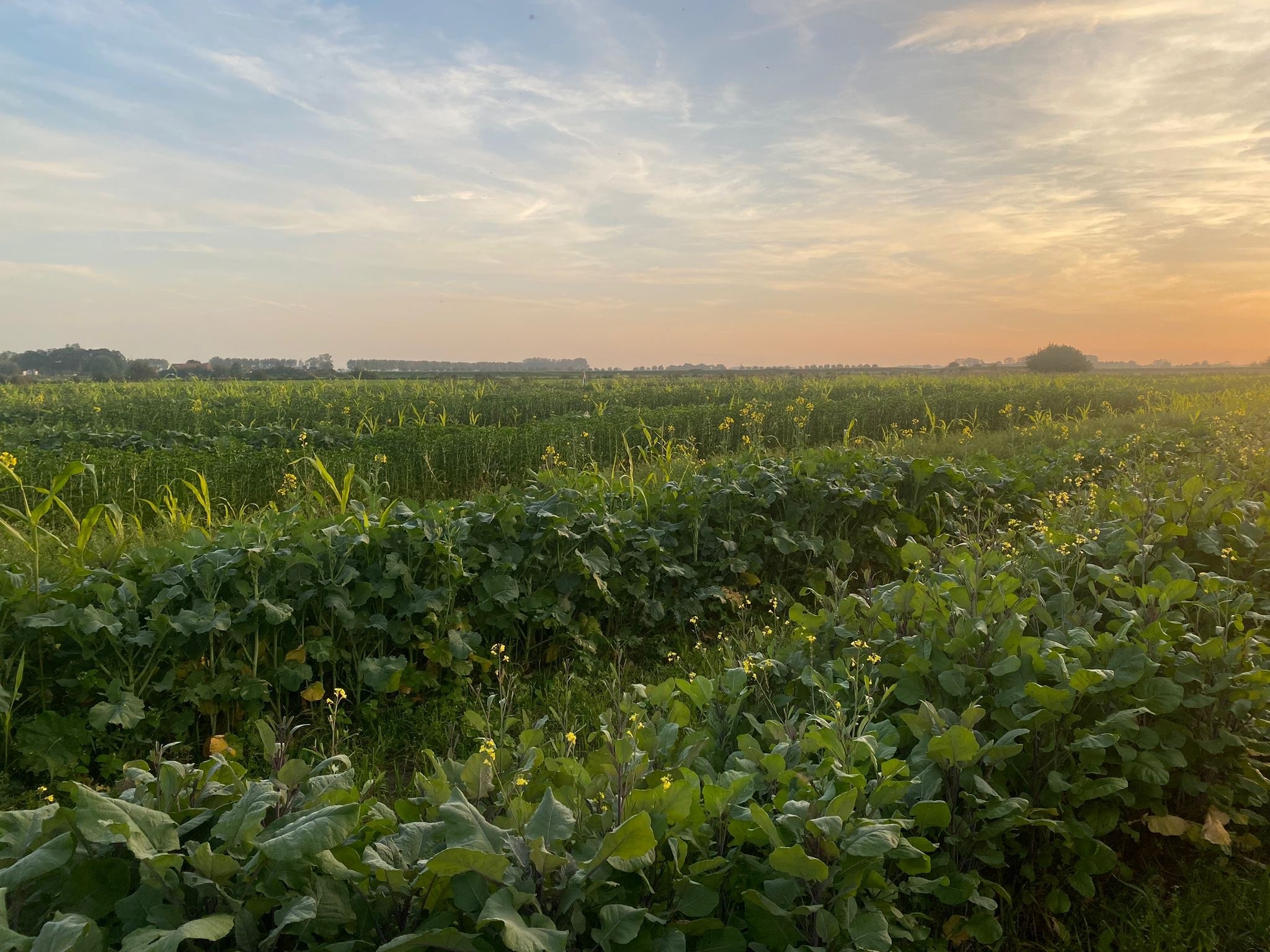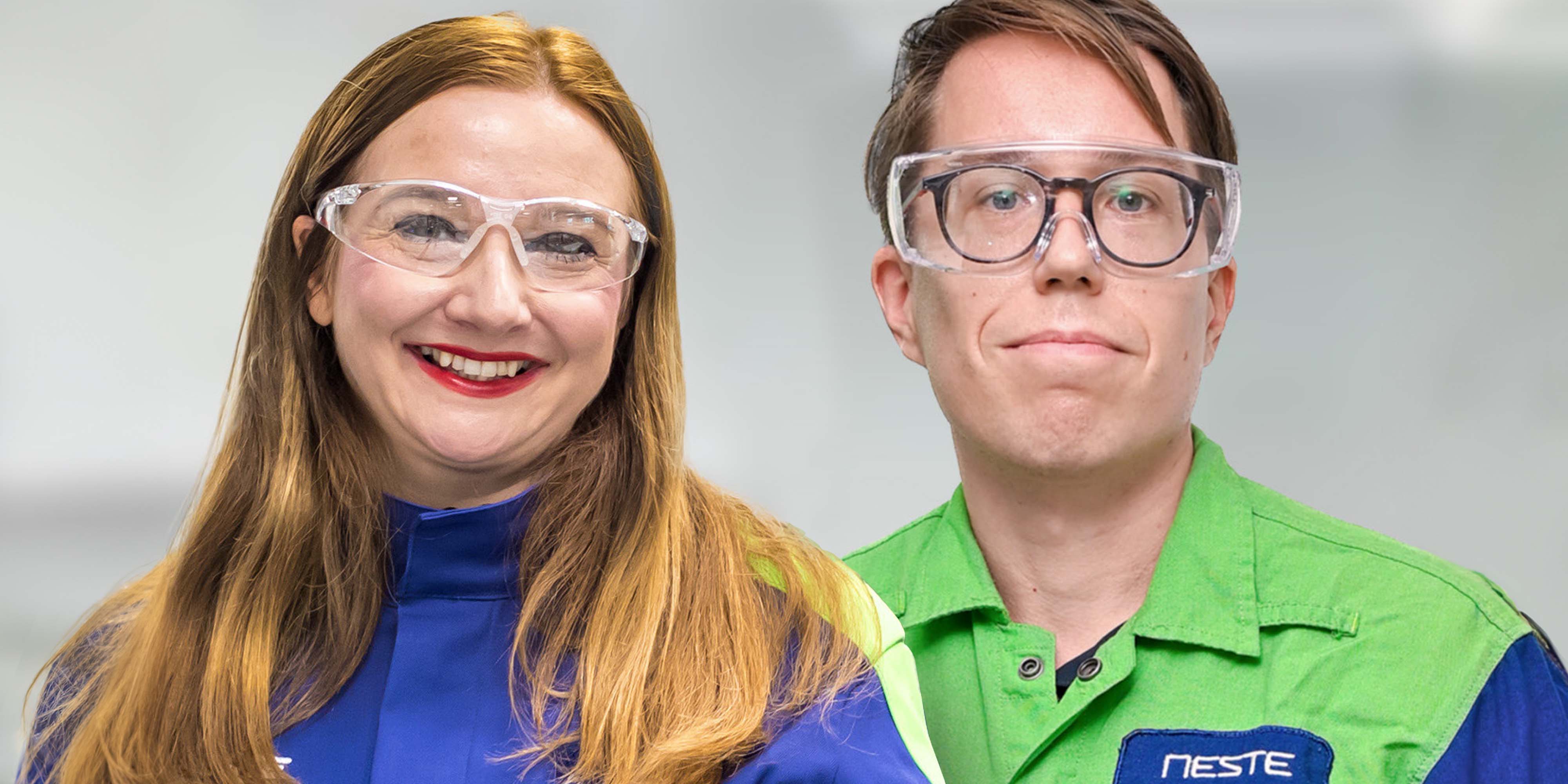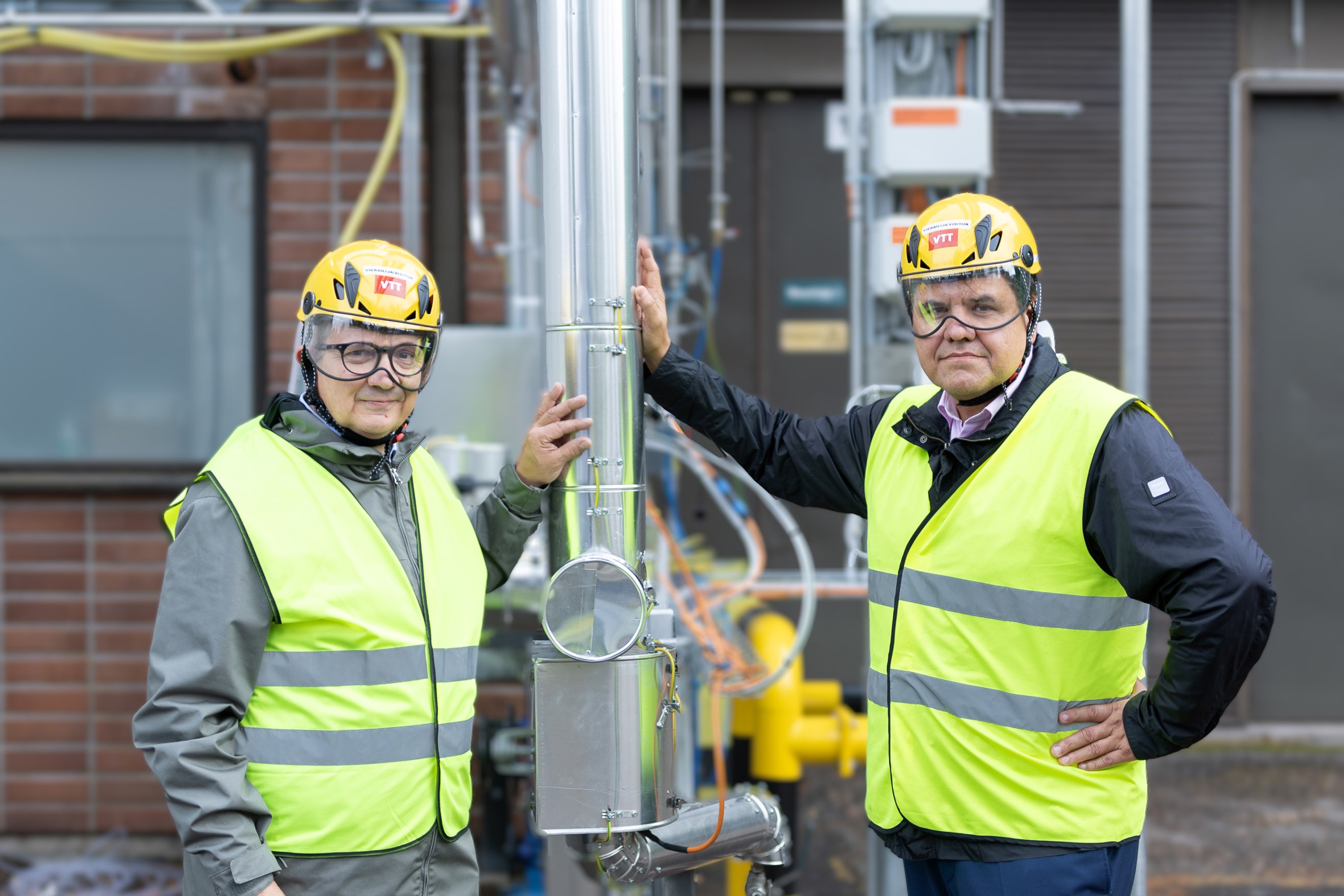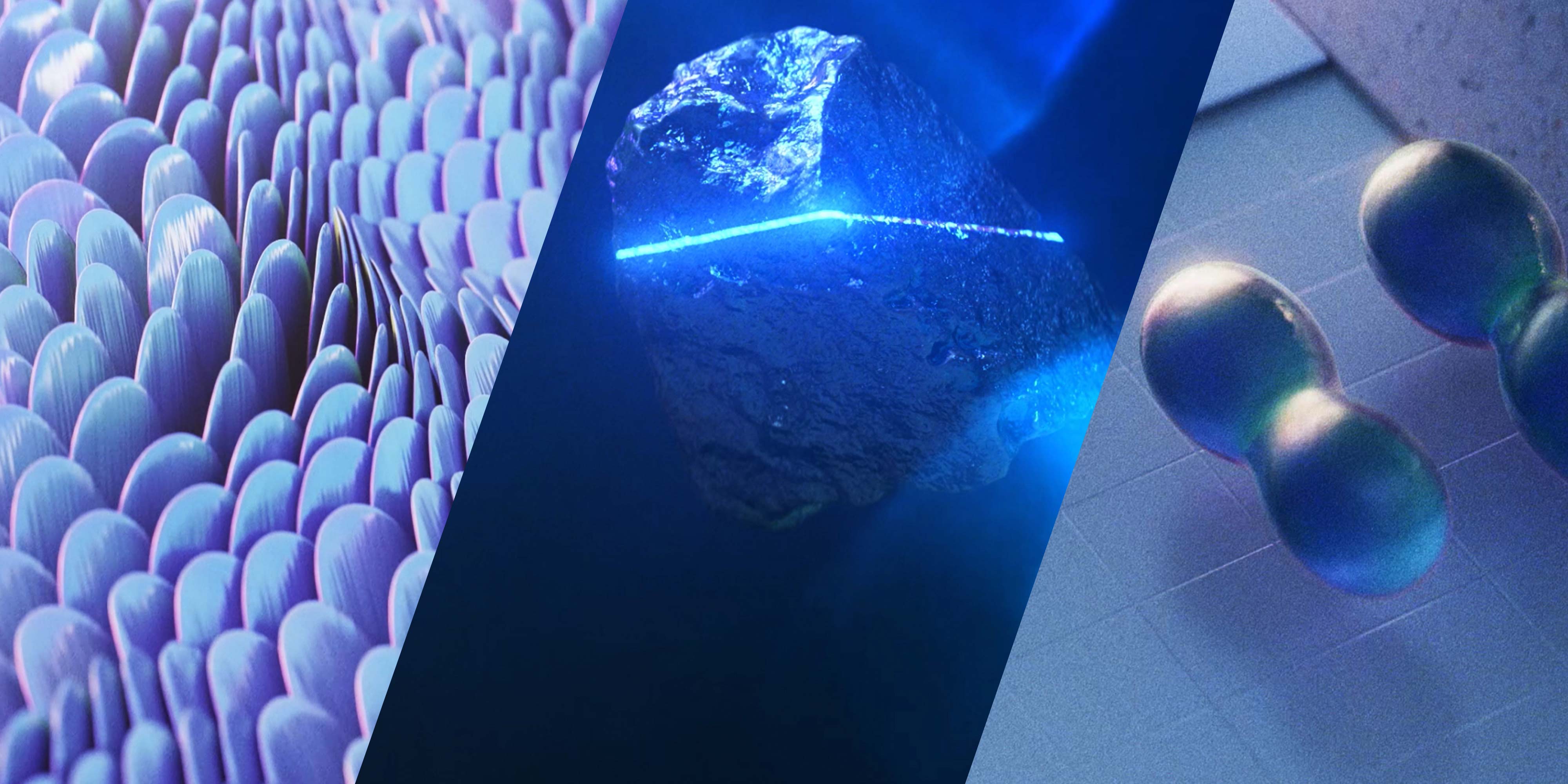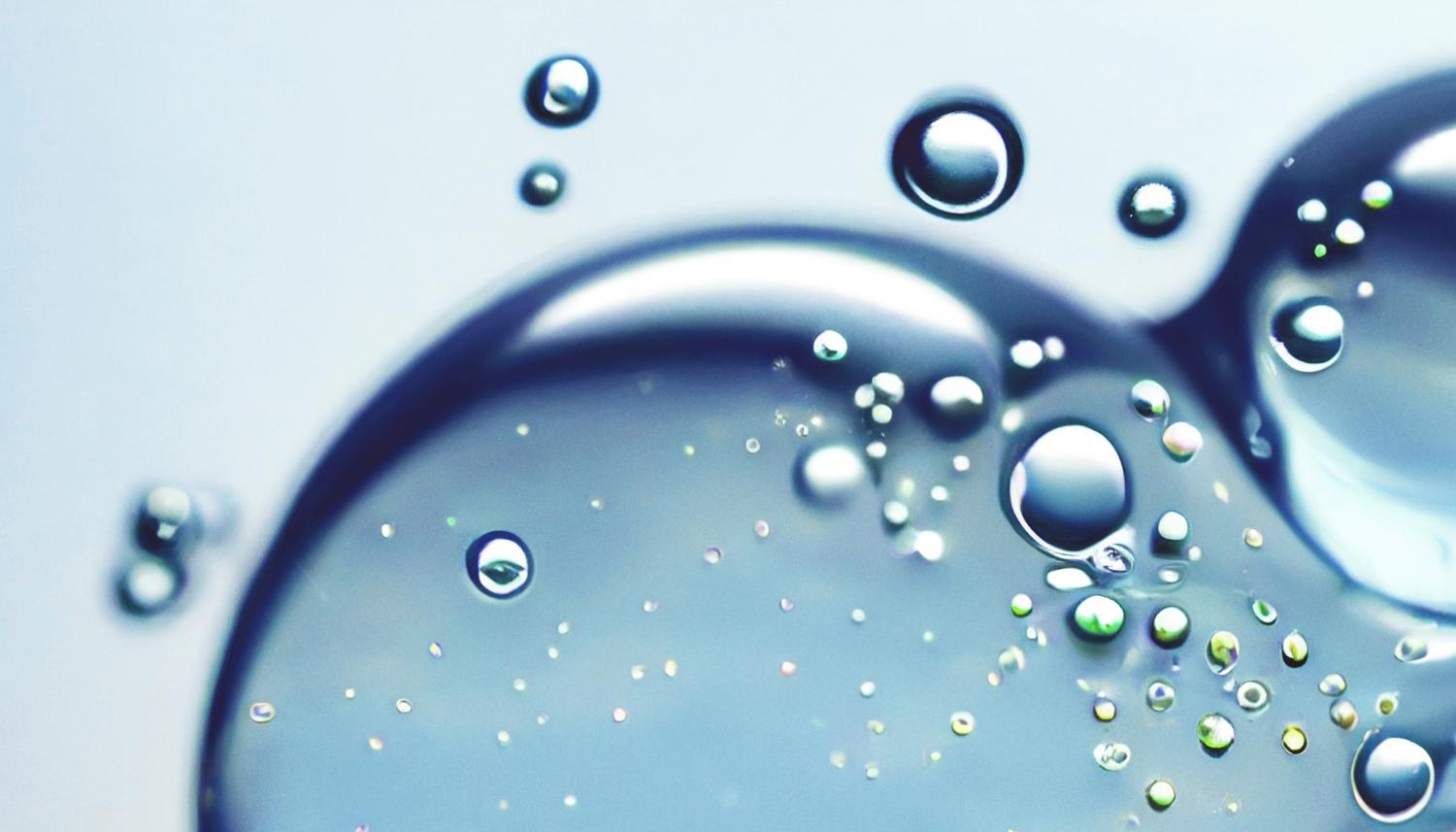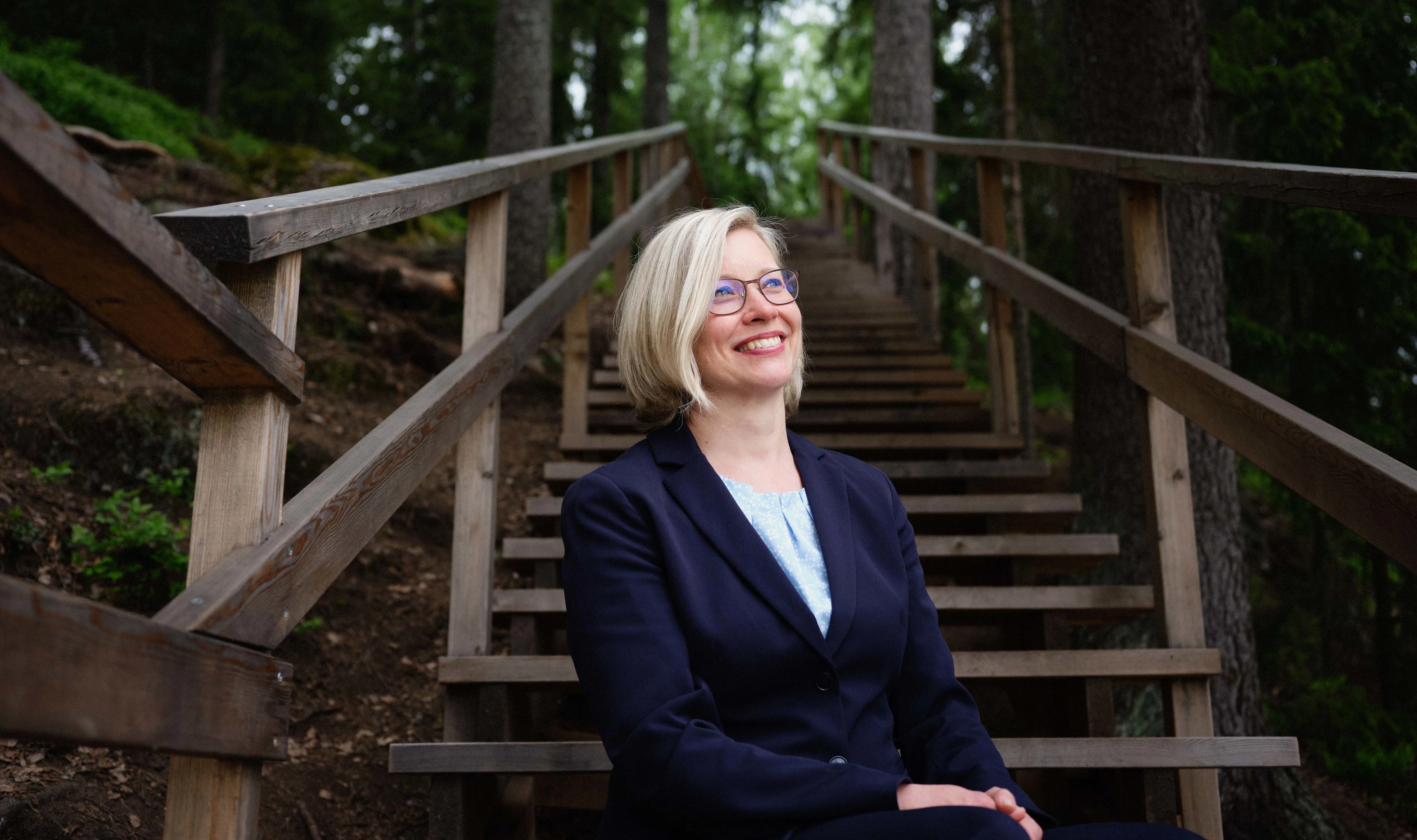
Innovation
12 minute read
Raw material researcher Pauliina Uronen: “Algae can change the whole game”
As a senior expert on biofuel raw materials, biologist Pauliina Uronen has championed the algae agenda at Neste since 2007. She believes that the microscopic wonder could change the game not only in the fuels business but food and feed, too. Here, she shares the five steps that defined her career in raw material innovation.
1996: Finding her soulmates in biology
The zoological museum in Helsinki, Finland, built in 1913, is a grand old Beaux-Arts building. That’s where, after years of self-questioning, Pauliina Uronen found her place in the world.
The museum was home to the department of biology at the University of Helsinki, and Pauliina Uronen was a twenty-something about to start her studies there. To the biology freshman, the museum’s atmosphere was nothing short of magical.
At the entrance, students were greeted both by a taxidermic African elephant and a magnificent statue of an elk, the crown-headed king of Northern forests. Inside, there was a distinctive scent of lacquered wood, paper and taxidermy that Uronen would learn to love. Behind every corner lurked samples of strange creatures and plants that fed Uronen’s imagination and curiosity – and would follow her into a groundbreaking research career.
While finding a home in natural sciences took some growing pains, the natural world with its infinite wonders had fascinated Uronen since her younger years.
As a teenager, Uronen collected bottles and washed boats with her friends from the sea scouts to finance the upkeep of their own sailing boat. She spent all her spare time hiking the endless Finnish forests and sailing the Baltic Sea.
“I practically lived in nature. At 15, I spent 10 weekends outdoors in a row,” Uronen exclaims.
When the carefree childhood years came to an end and Uronen graduated from high school, she had no solid plans for her future.
“I’ve always been the wandering type and done whatever comes my way.”
Before biology, Uronen had already studied another field. Thinking “it might be interesting”, and because the campus was close to her home, she initially entered the Helsinki University of Technology to study chemistry – only to drop the field after two years because she longed for a broader view on society and ecosystems.
Instead, she applied for communication research studies at the faculty of social studies at the University of Helsinki. She was disappointed not to get in – but received a right to study the subject as a minor.
I swore to myself that it would be my last attempt for a new beginning
“Every other day I spent in the laboratory and every other day I took communications courses,” Uronen recalls. The courses nourished her craving for abstract thinking and discussing social issues – skills that would prove themselves handy decades later in her career.
But for twenty-something Uronen, natural sciences still tempted her. One more time, she decided to apply for a different subject – biology.
“I swore to myself that applying for the biology department would be my last attempt for a new beginning. No more changing subjects for me.”
Luckily, the third subject was the charm for Uronen.
While she rarely sleeps in tents anymore, the sense of wonder for the natural world has never left her. The enthusiasm that followed her from childhood sailing trips to lectures in the biological museum has inspired her growth into a world-class algae specialist determined to discover how to make algae the next big raw material for the fuels, chemicals and food industries.
2000: Discovering algae
“There are round and long ones; some have beautiful flagella or spikes; some have spots that can sense light. Some secrete a poison that mashes other species and, finally, eats them!” That’s how Uronen describes the wonders of her life calling: the world of algae.
Uronen first found her passion standing by a small pond in the Finnish nature. It was the second year of her studies, and Uronen was collecting samples and studying them under the microscope on a course taught by Åke Niemi, a senior professor who had dedicated his life to the Baltic Sea – an inspirational figure in Uronen’s life.
Learning from a master who knew the sea inside and out, Uronen understood that the ecosystem of the Baltic Sea was the calling she had been looking for. A summer job and her Master thesis on the harmful blue-green alga in a Finnish lake sealed her interest in the world of algae. Later, the harmful algae of the Baltic Sea became the subject for her Ph.D. research.
An alga cell can double itself every other day, which makes algae’s growth potential immense
For Uronen, algae are utterly marvelous creatures.
“They constitute their own universe as there are tens of thousands of species of algae. What is even more astonishing is that they are so different from each other: like a pine tree and a dog.”
These single-celled organisms are impressive in other ways, too. Their chemical ingredients, such as fat and protein, are contained in that single cell. “A cell can double itself every other day, so algae are incredibly efficient when you think about growing and harvesting them. The potential for growth in mass is immense.”
Science and its autonomy have always been sacred to me.
Neste had patented the NEXBTL refining technology, which eventually spearheaded the company into the world’s largest producer of renewable diesel. In 2007, when Neste’s first renewables production unit came on stream, Neste fixed its eyes on algae, keen to research its potential as a renewable raw material.
For Uronen, the shift from academia to working for a corporation meant leaving the familiar world of science and starting over in an environment completely unfamiliar to her – the world of business.
“Science and its autonomy have always been sacred to me, but taking the job meant I could channel all my knowledge for the good of the company. The opportunity to put my skills to practice with Neste’s algae project motivated me from the very beginning.”
For five years, Uronen led algae research at Neste. Her mission was to determine whether it would be possible to produce fuel by extracting oil from algae on a commercial scale.
It was a period of intense knowledge gathering for Neste and for Uronen: She traveled from country to country, coordinating R&D with universities and overseeing Neste’s own algae cultivation tests. She met with over 100 startups with algae-related business and innovation. She partnered with various universities and research institutions to gather as much scientific knowledge of algae as possible.Over time, Uronen and the Neste algae team accumulated a considerable understanding of the algae business. Writing reports, making financial calculations and strategic estimations, Uronen was the primus motor, the instigator, the force that kept the algae project’s engine running.
Cultivating algae on a global scale would be a complete game changer
With her leadership, Neste ended up discovering various promising species of algae. The conclusion, which remains true today, was enticing: “It was evident that cultivating algae on a global scale would be a complete game changer in the world of renewable raw materials,” Uronen says.
She explains algae’s potential:
Algae are microscopic in size and only need water, sun, carbon dioxide and nutrients to grow. Furthermore, they thrive in salty waters, or even wastewater, consuming minimal freshwater and freeing valuable land to agriculture.
Algae’s ability to reproduce themselves is awe-inspiring, too, Uronen continues.
“Algae can divide and grow incredibly fast. Many of them can be harvested daily. It is also interesting how we can tweak the recipe of the growth process so the algae can produce more important substances, such as oil. Imagination is the limit.”
2015: Putting the darling on hold
Pauliina Uronen was the one who personified the algae scheme at Neste. Yet, she was happy to let it go to lower priority.
For half a decade, Uronen had devoted her time, energy and expertise for the algae project. Even though it was clear that algae could be a potential raw material for fuel, Uronen and the team recognized that producing algae products in a commercially viable way would require huge additional efforts.
In 2015, Neste decided to put the algae project on hold, in tracking and monitoring mode.
Some might have despaired over the failed venture and dwelled on possible missteps. Uronen, however, isn’t one of those people. She never considered the algae project a failure.
“I wasn’t disappointed in myself or our team at all. It was a calculated and sensible conclusion. Neste never gave up on algae completely; just made a strategic choice to concentrate on other materials,” Uronen says.
The company decided to further expand its portfolio of raw materials and focus on refining waste and residues, which now comprise 80 percent of Neste’s annual use of renewable raw materials. “The new focus was an excellent call,” Uronen says. “It made Neste the world’s leading provider of sustainable fuels.”
After shelving the algae project, Uronen found a new mission: Neste’s long-term renewable raw material strategy and renewable fuel regulations.
Uronen compliments her boss Markku Patajoki who introduced her to Neste’s Public Affairs and Ilkka Räsänen at a time she needed a new direction. What followed was a phase that Uronen now views as the most important one in her career thus far.
Between 2014 and 2018, the European Union set new renewable energy and climate targets for the next decade, until 2030. It was essential for Neste’s business to keep track of the development of new directives: which raw materials would become popular, and which would perhaps be prohibited altogether, for example.
Uronen’s scientific expertise, knack for details and understanding of business impacts proved to be invaluable assets. Quickly adapting to a completely new role, she carefully read and analyzed drafts of the new policies and suggested formulations for Neste’s Public Affairs team. She translated regulations into business impacts – providing Neste’s decision-makers with insights on which renewable raw materials would be accepted and which sustainability issues would be the most important in the future.
“Providing facts for lobbying was rewarding. It satisfied my appeal for nitpicking and finding the important details in the attachments of attachments,” she reminisces. “Seeing the power of directives on Neste’s investment plans and the development of renewable energy in the whole of EU was fascinating.”'
2019: The algae return
As the leaves turned red and yellow in the autumn of 2019, Pauliina Uronen was visiting the US for an important reason. The country is a hotspot for research and commercial production related to algae, and Uronen was there to meet up with startups and visit their algae farms.
“Every time I meet with a new group of people cultivating algae and see their accomplishments, I feel the same thrill I felt as a biology student on a field trip by the sea.”
During the years leading up to the trip, the tides had turned again in the world of raw materials, and algae took back the priority seat in Uronen’s work.
By 2019, Neste had reached great success with renewable fuels – and the world had truly woken up to the threat of climate change. While the quest to find environmentally sustainable and economically feasible raw materials to replace fossil oil use had become more urgent than ever, and with rapid progression happening in the research and commercial production of algae, Neste wanted to explore the algae world one more time.
To Uronen, who’s now continuing her work in Neste’s Algae Initiative team researching algae’s potential particularly for aviation fuel, the timing seems right this time.
“I’m glad Neste re-evaluated its stance. Now, the horizons for algae business are wide open.”
Mainstreaming algae would be huge in fighting climate change and global malnutrition.
The aim for Uronen and her team is to develop and produce sustainable aviation fuel out of algae oil. “But we are not interested in cultivating the algae just for fuel. Now, we are figuring out how to create value from the entire algae mass,” Uronen says.
If her team succeeds in mainstreaming the use of algae, that will be a huge step in fighting climate change and global malnutrition. “Algae cultivation would be environmentally sustainable, using carbon dioxide all the while saving land and water. The algae themselves would be nutritiously rich and easily malleable for many purposes, from fuel to food,” says Uronen, who’s currently working on creating partnerships and developing business models for the future algae revolution.
Jaakko Nauha, Uronen’s boss at Neste’s Innovation New Business Platforms, appreciates her diplomatic tact of communicating with the various partners they meet.
“She always manages to navigate the nuances of different working environments and cultures very well. She knows the inside outs of the corporate world,” Nauha says.
After all these years, algae in all their intricacies are still Uronen’s passion. Jaakko Nauha shares a memory from one of their business trips to the US:
After a long day’s work, Nauha and Uronen were heading to a beach by the Pacific Ocean to enjoy the sunset. “It didn’t take long for Pauliina to forget the sunset and discover some kelp in the sand, which immediately caught her attention,” he cheerfully recalls.
The algae business is on the verge of a world-scale boom.
Uronen’s enthusiasm, achievements and leadership have not been missed at Neste: She was recently appointed as a fellow, one of the highest possible achievements in a research career, with a broad area of speciality in biofuel raw materials, sustainability and regulations.“It is an honor. It feels wonderful that my efforts are recognized and valued.”In Uronen’s view, the algae business is on the verge of a world-scale boom. Neste’s ambitious goal is to make algae into a profitable field of business. It is the mission of Uronen and her team to make that happen.
Developing the algae business is complex work, as is always the case with new ventures.“We need to focus on strong partnerships. And we need the patience to move forward step by step in a realistic way. I’m quite confident that then we can succeed.”
Credits:
Ninni Sandelius, a Finnish journalist who has covered a wide range of topics from politics to lifestyle for various media outlets.
Pictures: Marko Rantanen
